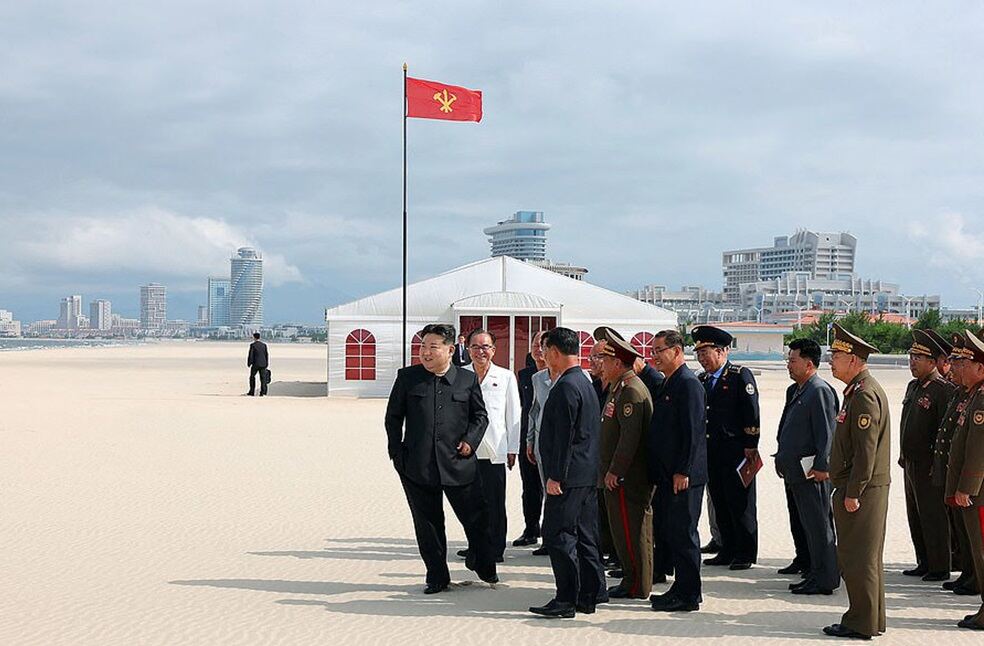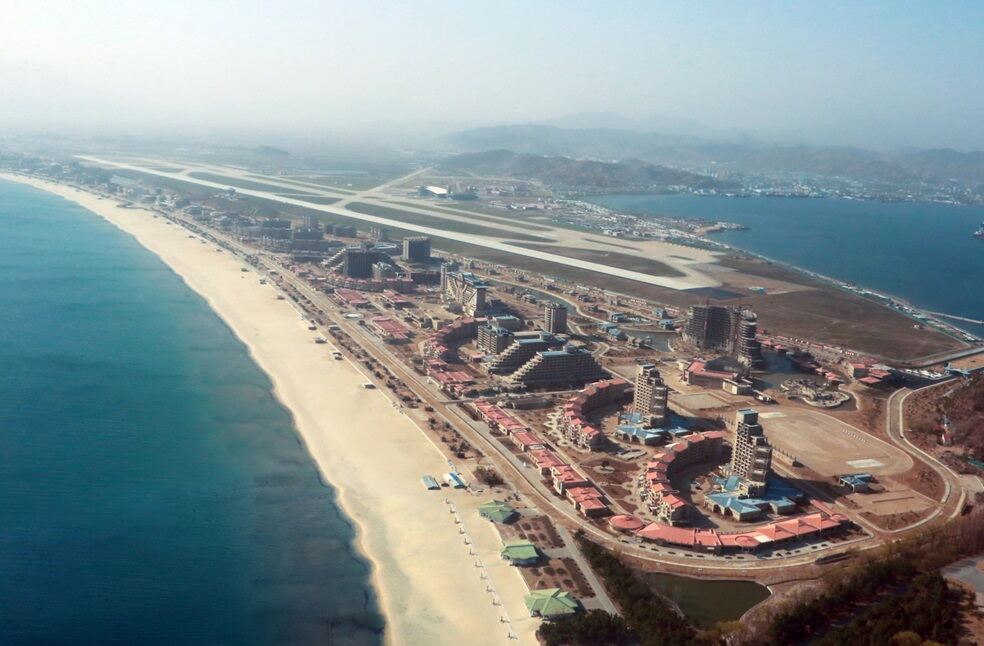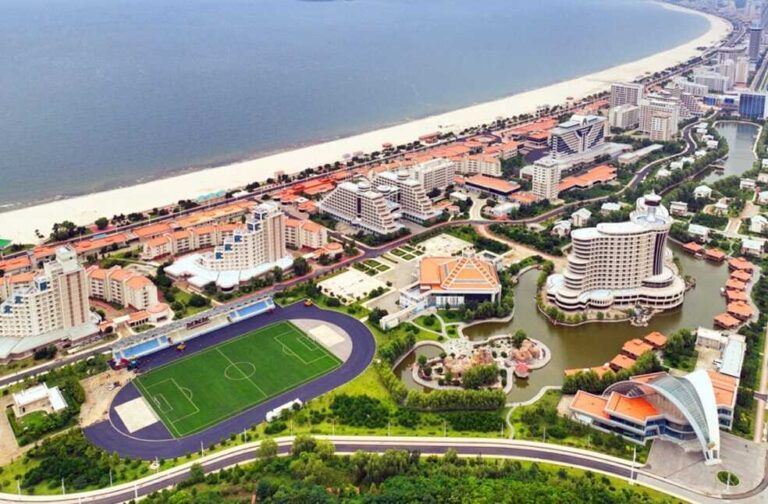Pyongyang: North Korea’s long-delayed Wonsan-Kalma beach resort is finally set to open in May 2025, according to state media reports after leader Kim Jong Un visited the site. The resort, a key part of North Korea’s strategy to boost tourism, has been under construction since early 2018 but has faced repeated delays due to missed deadlines and the COVID-19 pandemic.
Resort details and construction update
The ambitious project envisioned as a ‘world-level coastal tourist city,’ extends approximately 605 acres (245 hectares) along a 3.5-mile (5.5-km) stretch of white-sand beach. It includes thousands of hotel rooms and hundreds of buildings. Recent developments, such as beach chairs, new road paving, and significant construction work by the adjacent airport, suggest progress, despite the resort having been largely deserted.

Kim Jong Un’s visit marked his first to the Wonsan-Kalma site in over five years. During the visit, Kim said that the construction had reached the ‘final stage’ and convened a consultative meeting with top officials. The conference focused on preparations for the resort’s operation, with Kim emphasizing the need for high service and operational standards.
Tourism Strategy
Kim warned that the resort’s value as a tourist destination could diminish if service levels fall short. The leader called for additional developments, including an amusement park, leisure activity areas, and enhanced garbage and sewage treatment facilities. Training for service staff was also highlighted as a priority.

Kim’s statements suggest plans to increase foreign tourism to North Korea, a shift from the country’s previous strict border closures. The leader had also remarked about inviting ‘friendly foreign friends’ to other tourist zones like Samjiyon in the north. The move hints at a selective reopening, potentially limited to visitors from Russia, China, and other politically aligned nations.
Kim Jong Un also mentioned other locations poised for renewed tourism, including Mount Kumgang, Mount Chilbo, and several other sites. The North Korean leader’s focus on tourism development reflects a broader strategy to enhance the country’s international image and economic prospects.



